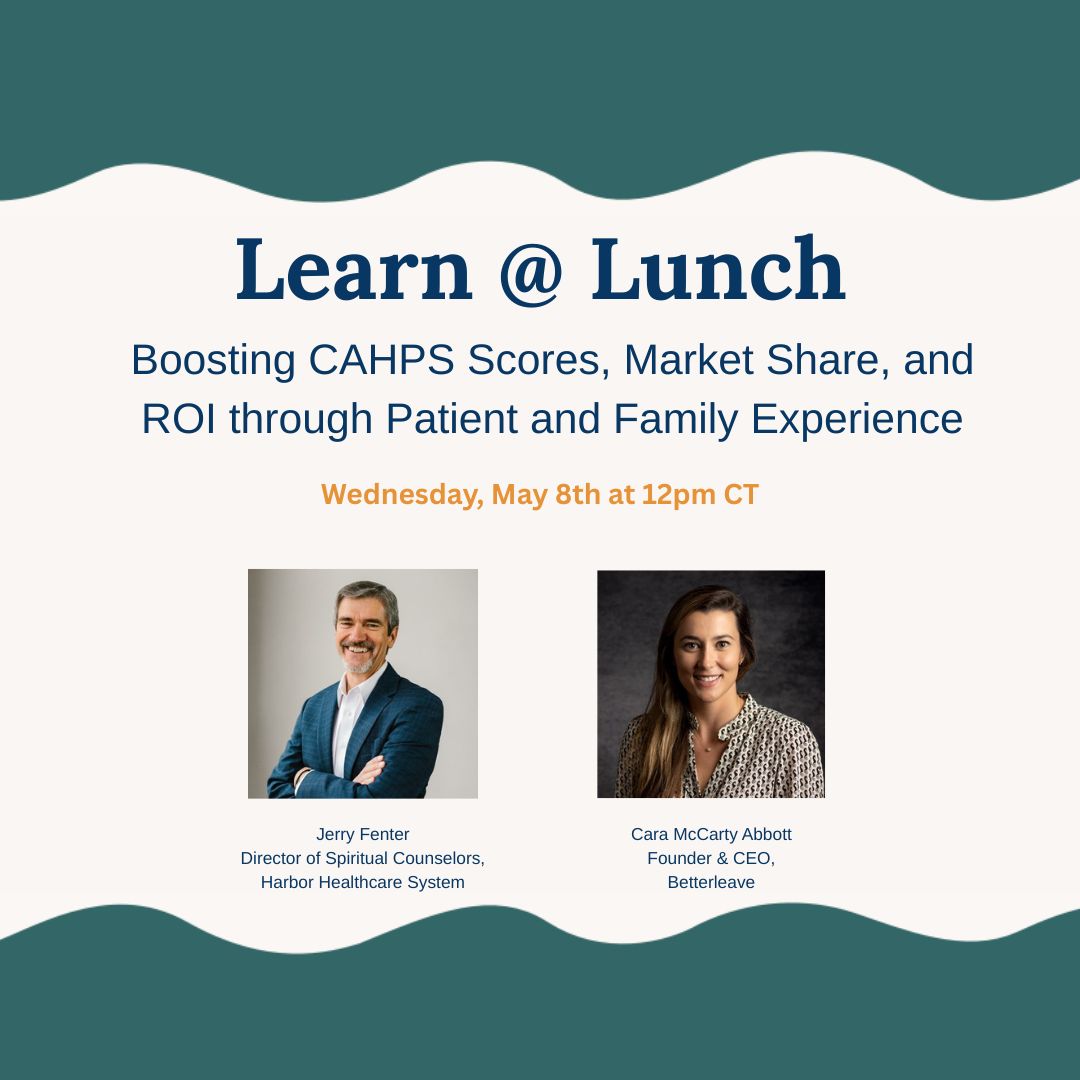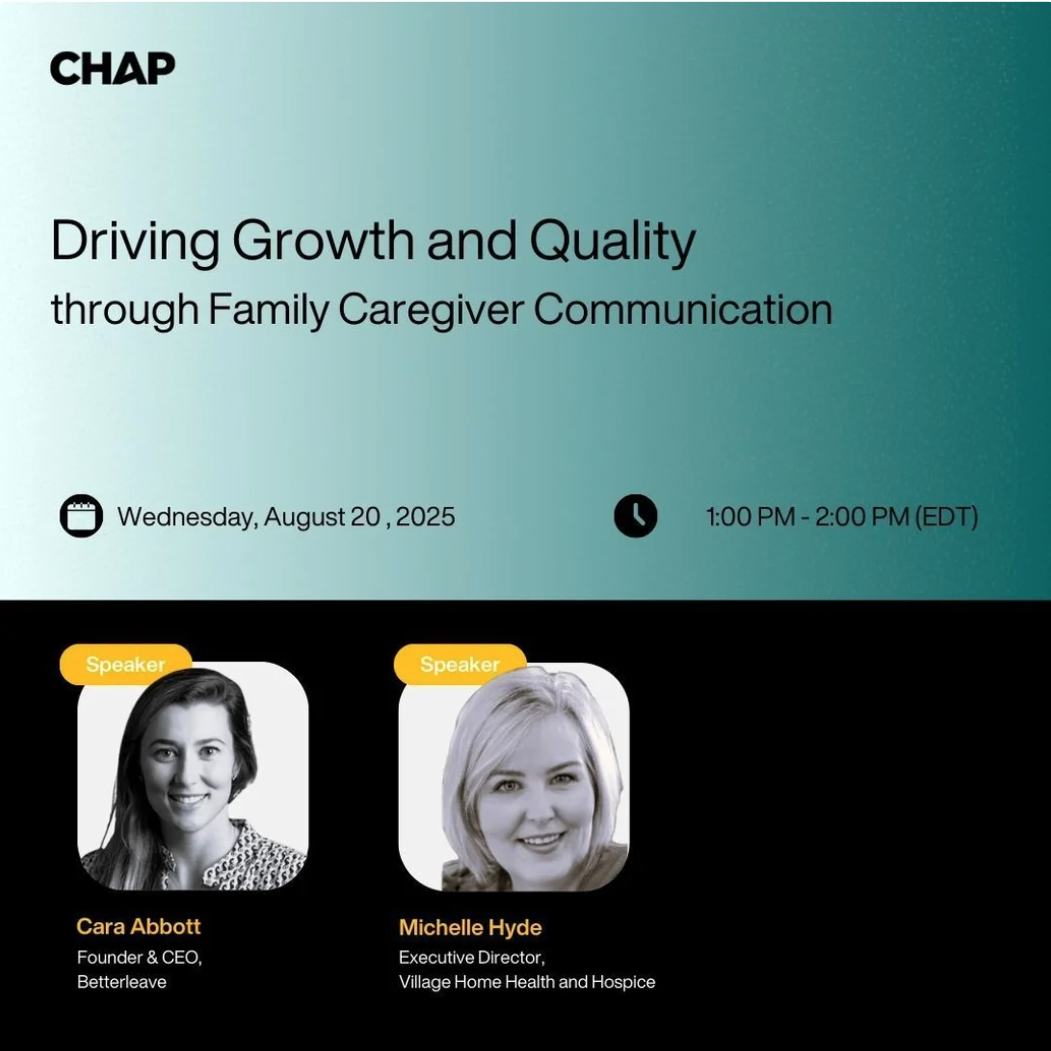Hospice care is about more than clinical expertise; it's fundamentally about human connection and meaningful support at critical life transitions. Cara Abbott, CEO of Betterleave, recently sat down with Jerry Fenter, a seasoned expert in hospice care and spiritual counseling, to discuss what it takes to create an exceptional family caregiver program.
Jerry, who serves as System Director of Spiritual Counselors at Harbor Healthcare and advisor to Texas Health and Human Services, underscored the critical importance of robust family caregiver support programs. With over 15 years of experience, Jerry emphasized, “The power of family caregiver support is vital for every agency. Quality care must go hand-in-hand with ongoing caregiver support to ensure continued growth and effectiveness.”
Challenges Facing Hospice Agencies Today
Jerry highlighted outdated communication methods, such as mailing letters that often fail to reach caregivers due to address changes or lack of response, resulting in engagement rates as low as 0.5%. Cara shared how modern hospice providers face increasing pressure as families turn to online reviews and digital feedback when selecting care.
The FAM Framework for Success
Cara introduced a powerful acronym—FAM—to guide hospice agencies:
- Family-centered: Programs must prioritize relationships, staff interactions, and value-added services to stand out in a competitive landscape.
- Accessible: Using innovative technologies and digital communication platforms like virtual support groups, Facebook communities, and text-based services significantly expands reach and engagement.
- Measurable: Capturing real-time feedback through calls, texts, and digital channels allows agencies to document impact, enhance morale through recognition, and strengthen referral relationships.
Pre-bereavement Support is Crucial
Jerry advocates strongly for pre-bereavement caregiver support groups, noting significantly higher community participation compared to existing patient families. "These groups provide crucial support long before death occurs, helping caregivers navigate emotional challenges and reducing feelings of isolation," Jerry explained.
Leveraging Technology for Increased Impact
Cara emphasized technology’s transformative potential: "With text messaging, 99% of messages are read, vastly outperforming traditional mail methods. It’s not just younger generations—98% of Americans across all ages own a mobile phone, making text-based support highly effective."
Turning Positive Feedback into Growth
A remarkable insight shared by Jerry was the lasting impact of thoughtful gestures like follow-up voicemail messages:
"Bereavement is the final touchpoint. It deeply influences family satisfaction [CAHPS] and future referrals."
Cara reinforced this by recommending agencies use positive feedback strategically, sharing testimonials internally for team morale and externally to strengthen referral partnerships.
Hospice Agencies and the New Consumer
An eye-opening statistic from Hospice News revealed high-performing hospices derive 60% of new admissions from individual or community referrals—not traditional medical sources. Cara and Jerry suggest actionable steps for agencies to enhance their visibility, including website content, Google business profiles, and prominently displaying CAP survey results online.
Moving Forward with Measurable Strategies
Jerry and Cara concluded with an invitation for agencies to critically evaluate their current bereavement programs. By embracing family-focused, accessible, and measurable strategies, hospice agencies can significantly elevate their caregiver support offerings, ensuring meaningful and lasting impacts.
Watch the Full Webinar




